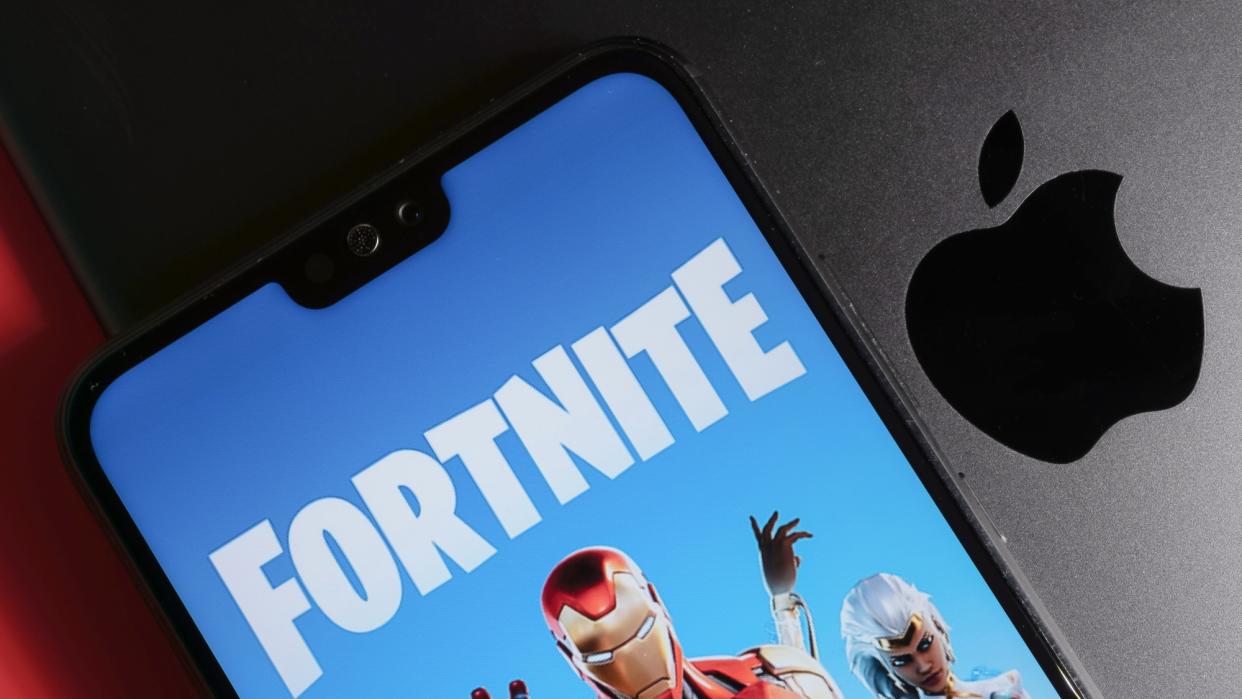Epic Games Store coming to iOS and Android in 2024 — here's what we know

Epic and Apple may have come to a truce (for the moment), but soon enough, they’ll be direct competitors in the app ecosystem.
Epic Games confirmed on Wednesday (March 20) that it will bring its Epic Games Store to both iOS and Android sometime this year. The company said in its State of Unreal presentation that the store will feature Fortnite, along with a host of third-party games. Epic stopped short of saying which games will be made available.
For developers, the move to offer their games on Epic’s mobile store may make sense. The company said that the same terms it uses for its PC version—a 12 percent commission and the ability to have royalties waived on Unreal Engine—will also apply on mobile.
For years, Epic has been playing outside of the mobile space, due to its ongoing feud with Apple over royalties and developer relationships. The company sued Apple in Europe, arguing that its iron-like grip on its App Store was anti-competitive.
Last month, Epic got one step closer to iOS when the European Union enacted the Digital Markets Act (DMA), a law that effectively requires Apple (and any other platform owner, like Google) to allow third-party marketplaces to operate on their operating systems. Soon after the announcement, Epic said that it was launching its own store for iOS.
However, shortly after the DMA went into effect, Apple said that it had banned Epic from its developer community for a range of alleged misgivings. Epic, of course, balked at the move but had little recourse. Ultimately, the companies held private discussions that led to Apple reinstating Epic on the grounds that it would adhere to its policies.
It’s clear what Epic has planned, but plenty of important details on the Epic Games store are still unknown. The company hasn’t said exactly when its mobile games store will launch, and the library of available titles is unknown. Instead, Epic posted on X that it would deliver the “same fair terms, available to all developers, on a true multi-platform store — with amazing games for everyone.”
On an informational page on its website, Epic was similarly tight-lipped, but confirmed the store would only be available to iOS and Android users in the EU.
“We look forward to serving customers in the European Union with access to Epic’s great mobile titles, as well as apps from other developers through Epic Games Store Mobile,” the company wrote. “We plan to provide customers with a fantastic place to find the best mobile apps for their Android and iOS devices and interact with their friends while providing developers with a distribution channel based on fairness and openness.”
For now, we simply know that Epic is going mobile — and Apple may not be too happy if and when it’s released this year.
Fortnite and the iPhone
As one of the most popular video games in the world, Fortnite’s absence from iOS has been nothing if not conspicuous. However, with Apple and Epic’s ongoing feud, it seemed, absent the DMA, that it would never come back to Apple’s platform.
As the DMA’s enforcement date approached, Epic made clear that it was planning to bring back Fortnite by launching its own app store in the EU. Not surprisingly, European users were excited.
Now, though, the company has acknowledged that Apple’s ban means it can’t bring Fortnite to the platform unilaterally. That said, Epic has said that it will explore the possibility of delivering Fortnite to iOS users through another third-party app store. Exactly which app store is unknown.
What about the Epic Games Store?
Epic was under the impression that it would be able to launch its own Epic Store on iOS. The move would’ve been a boon for mobile gamers who want to access Epic’s strong repository of games and download the titles without Apple’s oversight.
However, now that Epic has lost its developer license, its store, too, is out. Again, Epic could work with other app stores to make its games more readily available, but whether Apple could somehow block other titles available on other platforms is also unknown.
Other App Stores a possibility
It’s no secret that Apple has kept an iron-like grip on iOS since its launch. Apple has argued that such control ensures security and enhances the quality of using its phones. Its detractors, however, have said that the move only fills Apple’s coffers and limits what developers can create.
The DMA paves the way for developers who wouldn’t otherwise get their apps approved in Apple’s App Store to instead try their luck with third-party marketplaces where rules and regulations may be more relaxed. It also gives users the ability to access a wider array of games and apps that Apple may have previously banned.
However, Apple’s decision to ban Epic raises questions about its ability to ban other third-party app stores from iOS by pulling their developer accounts. As of this writing, it’s unclear just how much control Apple has in stopping third-party marketplaces and whether any attempts to sidestep the DMA by making similar arguments to those it made with Epic could be called into question.
Has Apple found a loophole for stopping users from accessing third-party marketplaces? It’s too soon to tell, but it’s worth watching.
What this means for US iPhone users
To be clear, the US-Epic feud currently only affects European users and companies regulated by the DMA. For American users, therefore, don’t expect any third-party app stores or Epic to find a way to launch Fortnite to U.S. users anytime soon.

